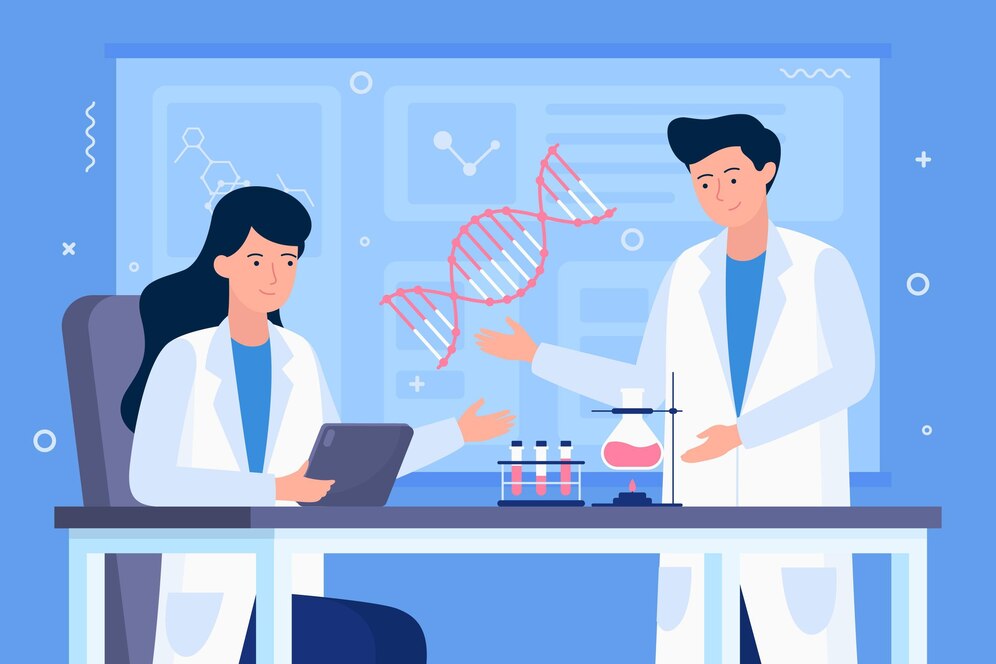Abstract
Genetic counseling has emerged as a transformative approach in preventive medicine, offering insights into genetic predispositions and enabling proactive healthcare decisions. This article explores the critical role of genetic counseling in modern medicine, its process, benefits, and how it is shaping the future of preventive healthcare.
Introduction
Preventive medicine focuses on maintaining health and preventing diseases rather than treating conditions after they occur. Genetic counseling is at the forefront of this medical evolution, providing individuals with information about their genetic risks and empowering them to make informed healthcare decisions. Understanding the impact of genetic counseling can help healthcare professionals guide patients more effectively and enhance healthcare outcomes.
What is Genetic Counseling?
Genetic counseling is a communication process that involves evaluating family history, medical records, and genetic test results to understand the risk of genetic conditions. Genetic counselors work with individuals or families to provide personalized information and support, helping them comprehend genetic contributions to diseases and the implications for their health.
The Process of Genetic Counseling
The genetic counseling process typically includes:
- Initial Assessment: Gathering detailed family and medical histories to evaluate genetic risks.
- Risk Assessment: Estimating the likelihood of genetic conditions based on collected data.
- Genetic Testing: Conducting tests to identify genetic mutations or variations that may impact health.
- Education and Counseling: Explaining test results, discussing potential health implications, and offering guidance on preventative measures or treatments.
- Follow-up Support: Providing ongoing support and resources as individuals navigate their healthcare choices.
Benefits of Genetic Counseling in Preventive Medicine
- Early Detection and Prevention: Identifying genetic risks allows for early interventions and proactive healthcare strategies, potentially preventing diseases before they develop.
- Personalized Healthcare: Tailored health plans based on genetic information can enhance the effectiveness of preventative measures and treatments.
- Informed Decision-Making: Access to genetic information empowers individuals to make educated decisions about their health and lifestyle.
- Family Planning: Understanding genetic risks enables informed family planning decisions and management of hereditary conditions.
Case Studies: Real-World Applications
- Breast and Ovarian Cancer: Genetic counseling for BRCA gene mutations allows individuals to consider preventive measures such as increased screening or prophylactic surgeries.
- Cardiovascular Diseases: Identifying genetic predispositions to heart conditions can lead to early lifestyle interventions, potentially reducing the risk of severe cardiovascular events.
Challenges and Considerations
- Ethical Concerns: Ensuring confidential and sensitive handling of genetic information is paramount.
- Accessibility: Increasing access to genetic counseling services, particularly in underserved communities, is essential for equitable health outcomes.
- Cost: Genetic testing and counseling can be expensive; addressing cost barriers is necessary for broader utilization.
Future of Genetic Counseling in Preventive Medicine
The integration of genetic counseling into routine healthcare is set to expand as technology advances and genetic research progresses. Future developments may include more comprehensive genetic screenings, better prediction models, and integrated healthcare systems that utilize genetic information to provide holistic care.
Conclusion
Genetic counseling plays a crucial role in preventive medicine by offering valuable insights into genetic risks and promoting proactive health management. As the field continues to evolve, it holds the promise of more personalized, effective, and anticipatory healthcare solutions. For healthcare professionals and individuals alike, understanding and utilizing genetic counseling can lead to better health outcomes and a future where preventive medicine is truly transformative.




